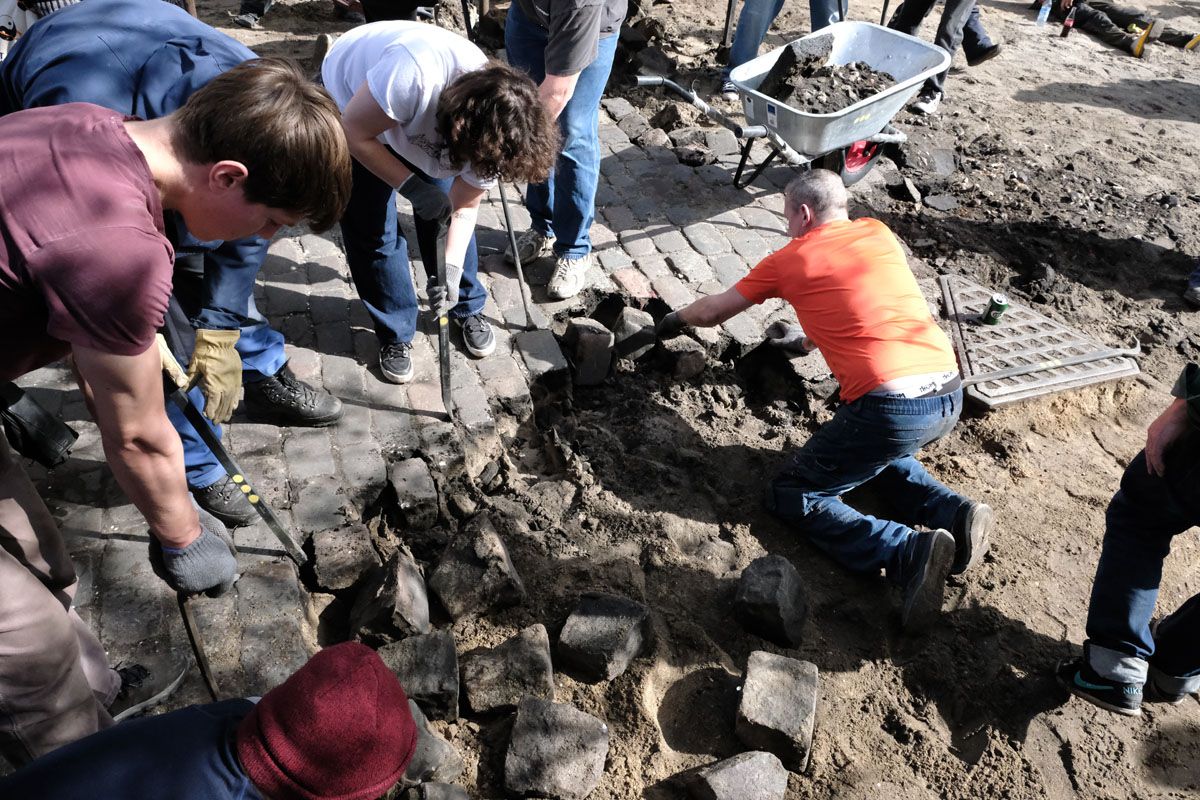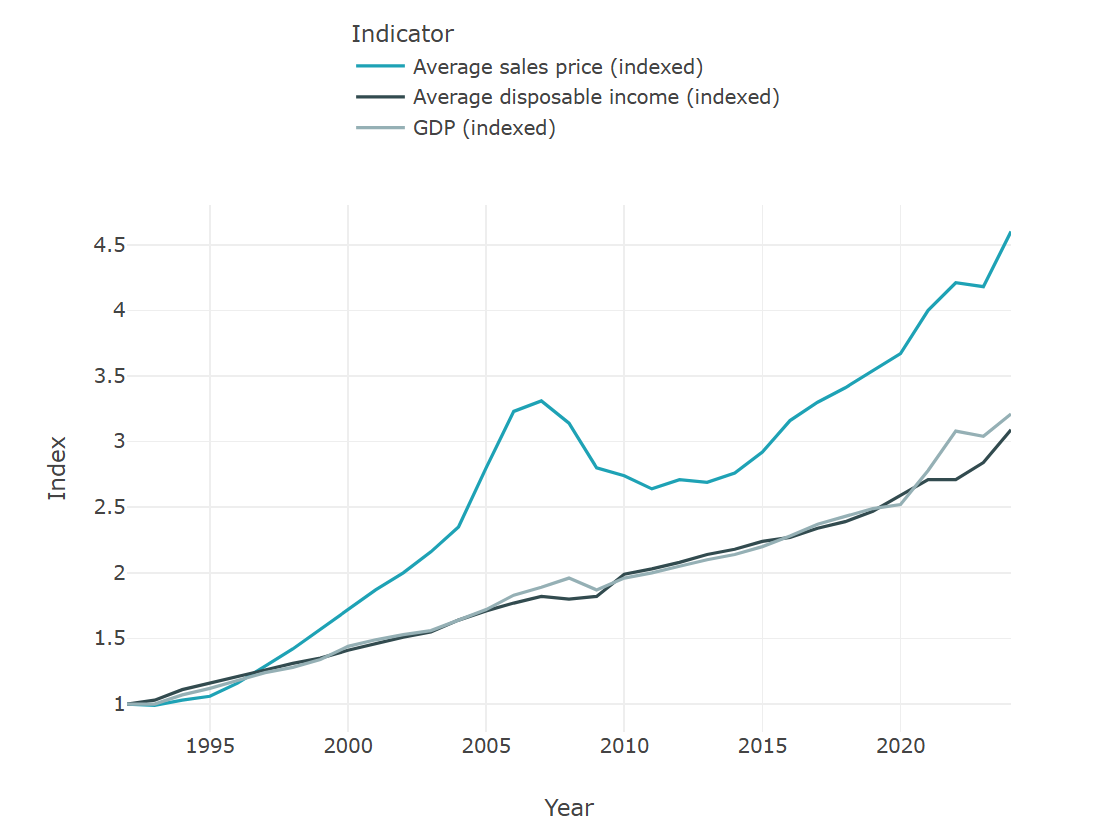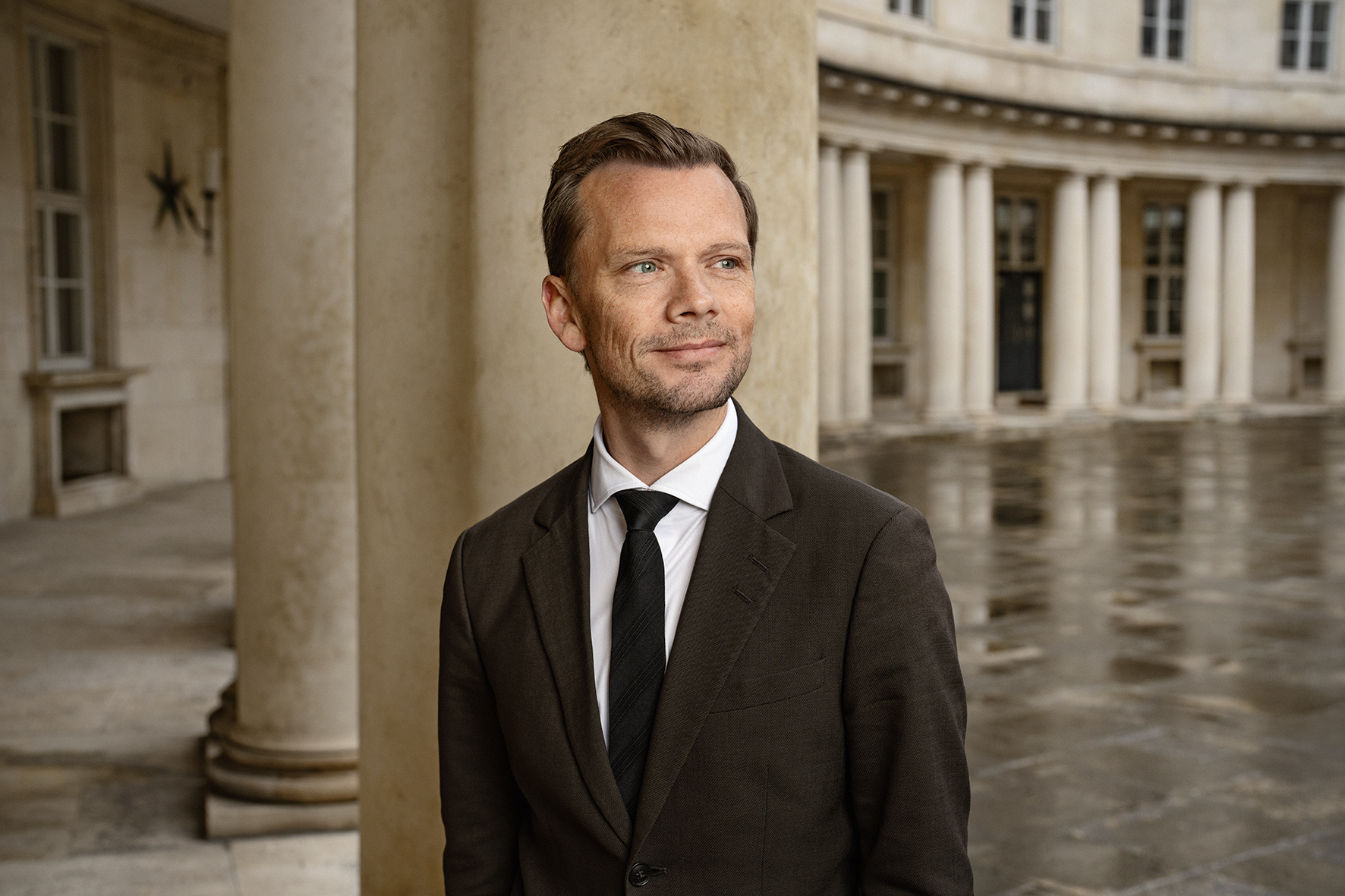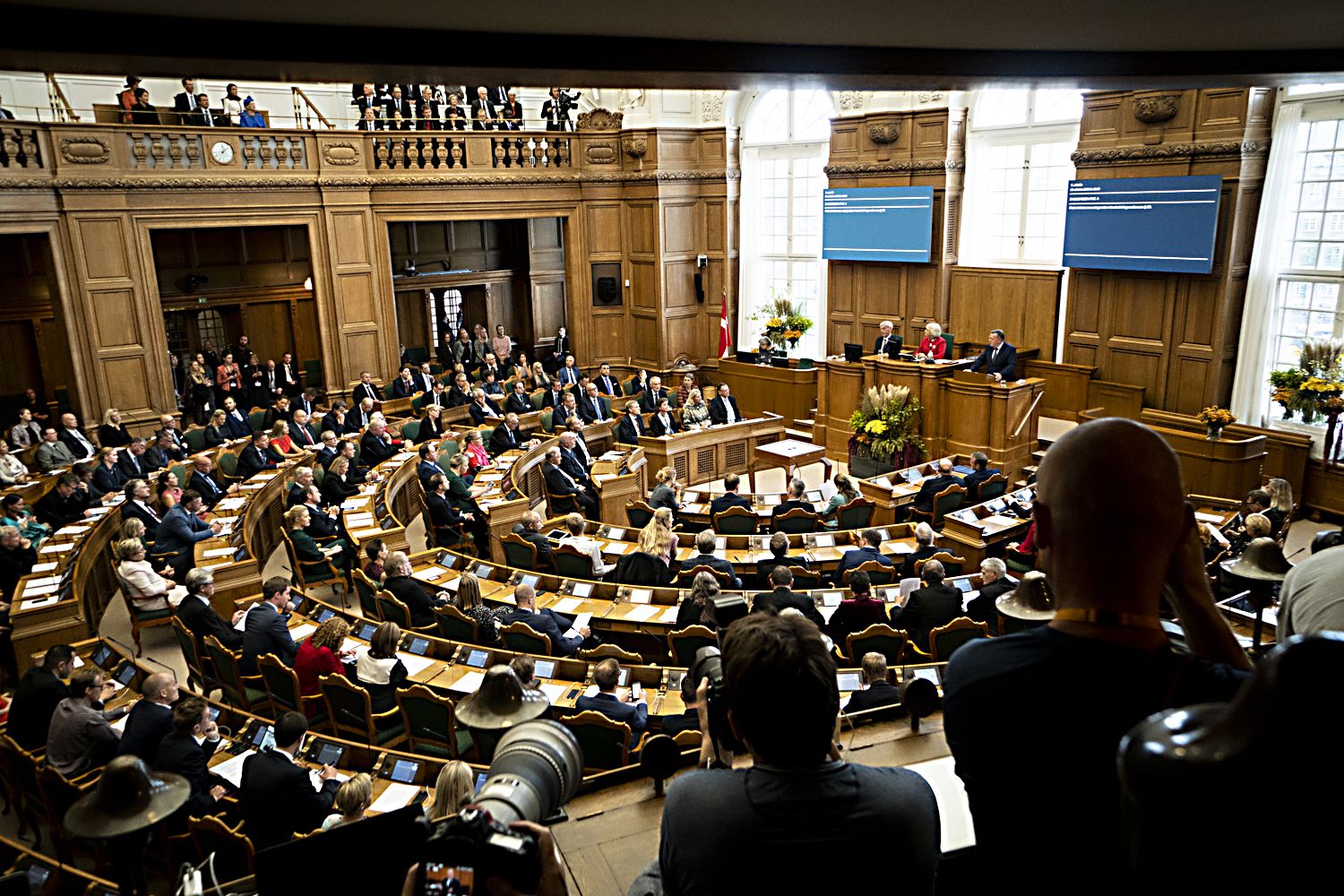It’s 6 April, a clear-skied spring morning in Copenhagen, and the infamous Pusher Street in Freetown Christiania – for decades a focal point of hashish sales and political tension – is being dug up by its local residents.
With sun on their backs, they work by hand – with shovels, trowels, sledgehammers, and metal poles – levering cobblestones the size of bowling balls from the wet earth and loading them into wheelbarrows, which are joltingly carted off by more volunteers.
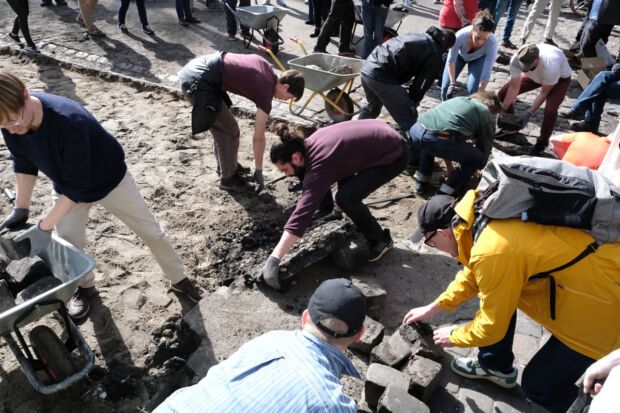
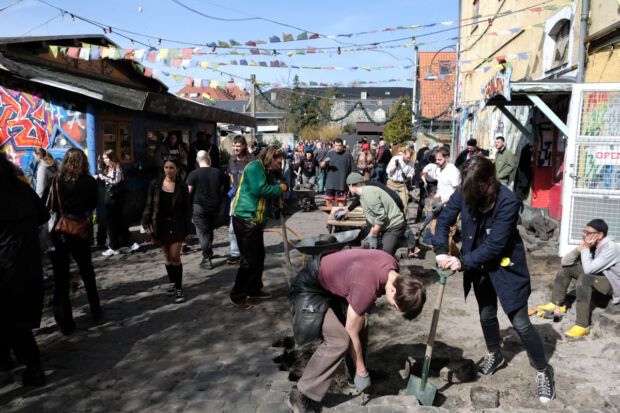
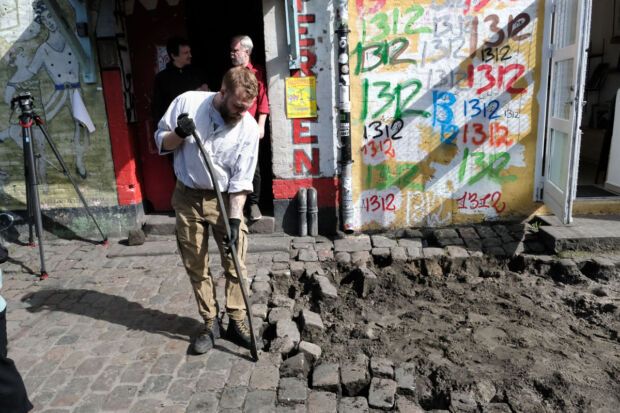
There must be at least 60 diggers. But the Christianites are not the only ones on Pusher Street: the stony stretch, bookended by a sprawling clothes market and the famous Woodstock drinking hole, is thronged with tourists, curious Danes, and national and international press.
On a regular day, this is a no-photography zone – but today, it’s a movie set. Under a large mural of a camera with a red line through it, press crews and idling reporters are wielding shoulder-mounted film gear, zoom lenses, tripods, and station-branded mics, climbing on benches and walls, trailing cables, to get a shot of the workers.
The press is not just here for the spectacle. In fact, the most significant feature of the dig is invisible; they’re here for the politics.
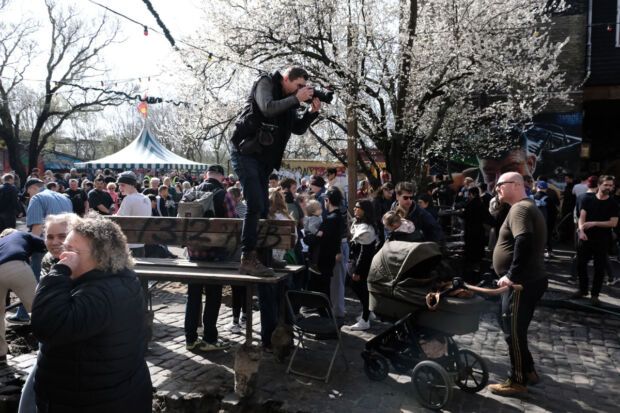
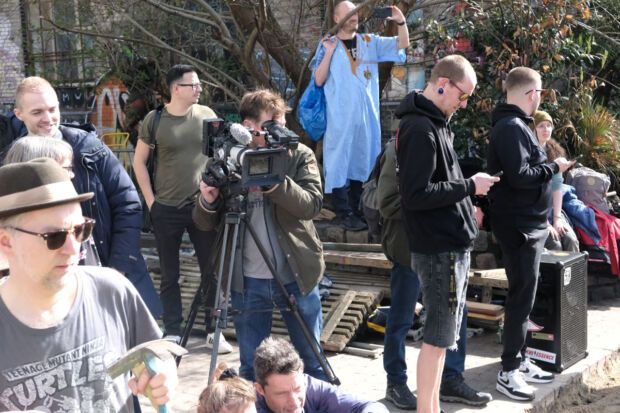
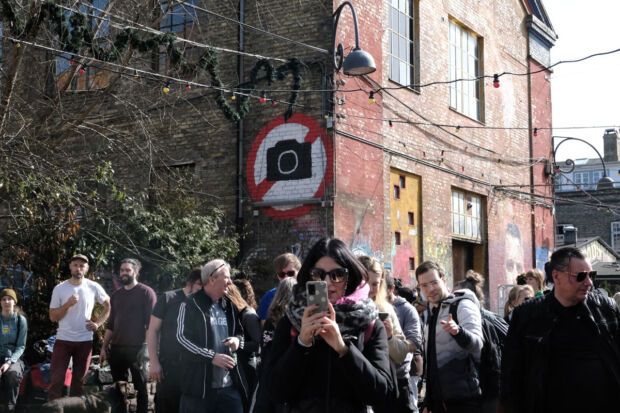
A sanctuary
Pusher Street is inside Freetown Christiania, an area of ex-army barracks occupied by squatters and activists in the 1970s, which has since grown into a self-governing commune.
Here, residents live and work alternatively, free from institutional authority. Christiania has its own schools, waste collection services, and community-based administration. The commune’s own website calls it “the city’s green breathing space”. Residents call it a ‘sanctuary’.
But the place has also become a hub for Copenhagen’s organised gangs over the years. Shielded from the interference of police and politicians, drugs and violence have proliferated.
In 2016, it reached a fever pitch when a police officer was shot in the head at point blank range on Pusher Street. In 2023, another execution-style murder at Stjerneskibet café, adjacent to the main strip, was linked back to Danish biker gangs.
Finally in March 2024, desperate Christianites agreed to accept financial aid from the government to redevelop the area and dissipate its drug trade – hoping to erode the gang monopoly.
“We don’t have very much money in the coffers, and Copenhagen Municipality has expressed that they want to help,” the spokesperson for the Christianite initiative Enough is Enough, Klaus Danzer told TV2 Kosmopol, at the time.
Hulder Mader, press spokesperson for the commune, said: “We are tired of Christiania always being defined by hashish sales.”
The Ministry of Social Affairs swiftly set aside DKK 14.3 million for the “first phase” of a plan to redevelop Pusher Street, and the Justice Minister Peter Hummelgaard vowed that it “will be permanently closed during 2024.”
How exactly the street will be redeveloped has not yet been determined, but in January this year, spokesperson for Christiania Mette Prag told TV 2 Kosmopol that Pusher Street will first become a “culture and construction festival and then a creative business area”.
The Lord Mayor of Copenhagen Sophie Hæstorp Andersen followed suit in March with: “This will be a gift to Copenhagen. My dream is for a creative sanctuary in the city, where people still come to experience different ways of thinking. But it has to be without Pusher Street. We simply have to write the crime, violence and murders out of Christiania.”
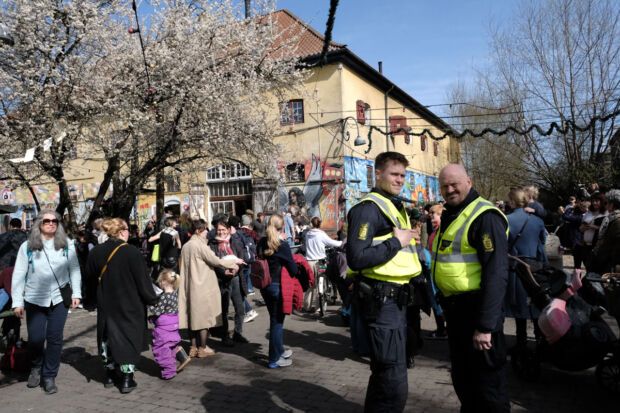
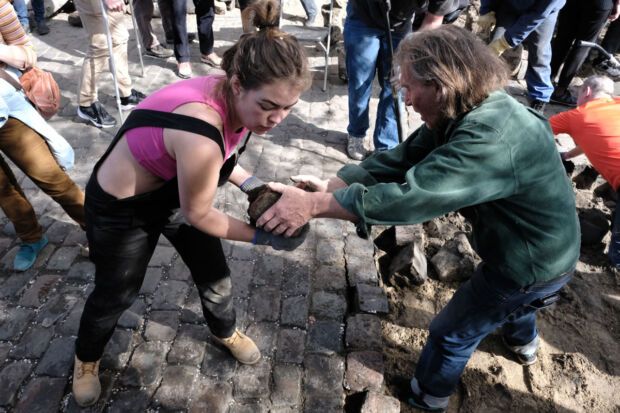
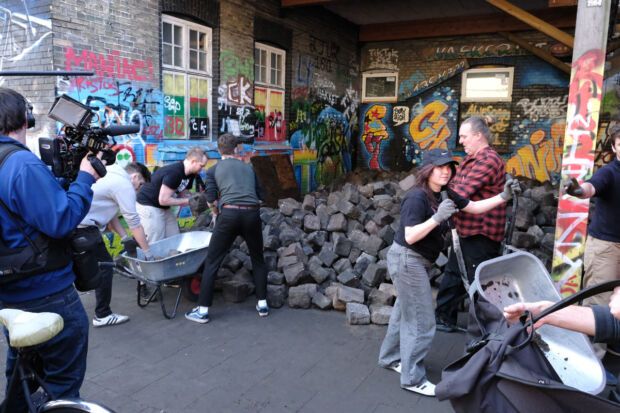
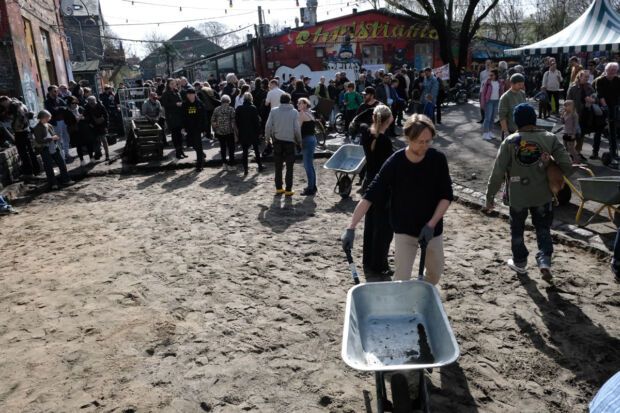
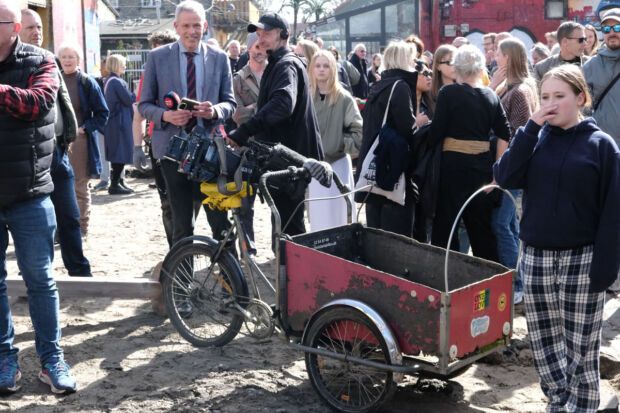
‘The street’
“Make a chain!” calls a woman in overalls and workman’s gloves to her fellow diggers, over the heads of the idling crowd. “Strong men, strong men coming through!”
A straggling line of Christianites forms, passing cobblestones hand-to-hand to reach a vast discard pile attended by a gaggle of volunteers in red ‘Bevar Christiania’ (Protect Christiania) t-shirts.
Several of the crowd are cradling cobblestones to take home as souvenirs. Pusher Street is down to bare sand in many places now, and new residents are still joining the work.
“Wow, you’ve been busy!” says a bearded man brightly, craning from a leafy side street over the dismantled ground, to his shovel-bearing friend, who cracks a weary smile.
Despite the crowds and general fuss – which Christiania’s residents moved here, after all, to escape – the atmosphere is jovial. Beers are being popped. Children are jumping in the freshly dug sand. A pair of subwoofers are booming music.
“It’s Shine on You Crazy Diamond! This is my favourite song,” says one young man, leaning back from digging as the familiar intro whelms. “It feels right, somehow.”
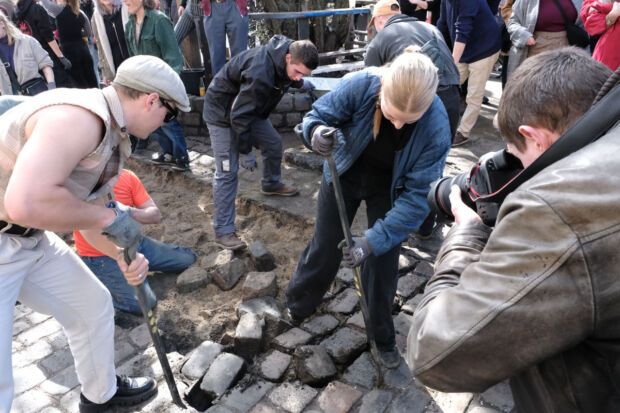
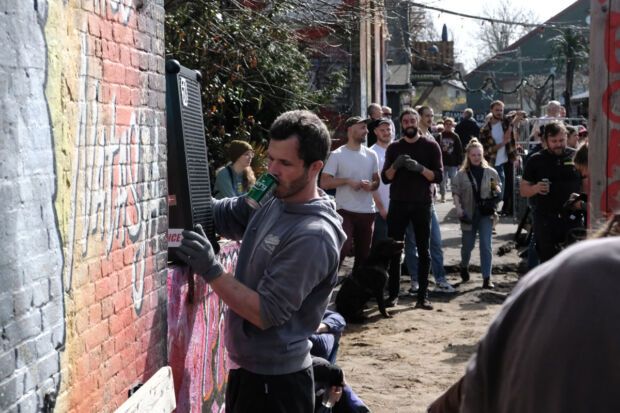
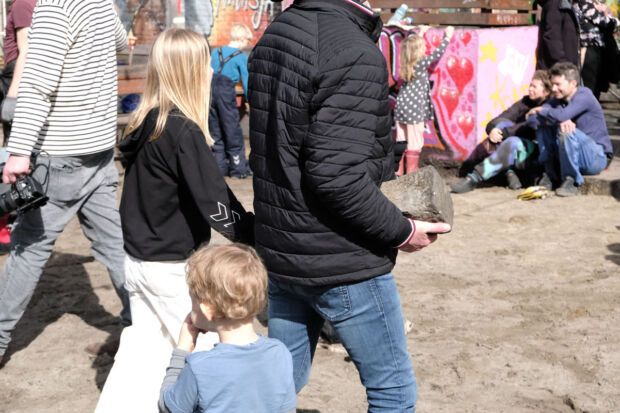
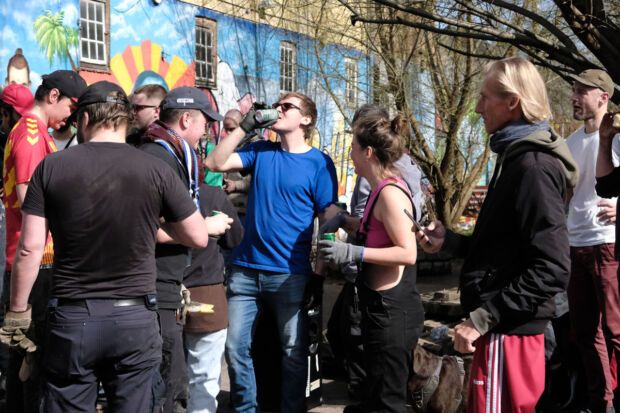
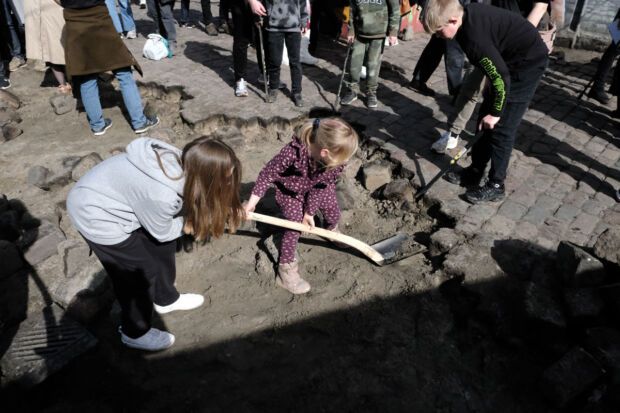
And indeed, there is nostalgia in the air, too.
Pusher Street – or “the street” as Christianites call it – got its current name 35 years ago in 1989 when residents closed off the sanctuary’s old main entrance on the corner of Bådsmandsstræde and Prinsessegade with a concrete wall, to confine hashish sales to one street, instead of allowing it to spill into rest of Christiania.
“Pusher Street’s history has had a great influence on the rest of the city’s history – for better or for worse,” historian Ole Lykke Andersen, who runs Christiania’s local archive, told TV2 Kosmopol recently.
Today’s dig is both for better and for worse. Copenhagen’s famous anti-establishment stronghold, in begrudgingly accepting financial aid from the establishment, may finally be able to free itself from the clutches of gang culture. But will the money come without a caveat?
At 10 AM this morning, when the first stone was lifted from the street, it was handed to the Mayor Sophie Hæstorp Andersen, who lifted it into the air and proclaimed: “Pusher Street must die so that Christiania can live.”
Now it’s 12:30 PM – a couple of hours, and many stones later. Flanking the street are small venues and studios: a woodworking shop, an artbook store, the red painted doorway to famous live music stage Operaen.
Inside, their owners sit, alone or in pairs, in slatted sunlight, smoking cigarettes, sipping beers, or just watching pensively as their street is dismantled.


